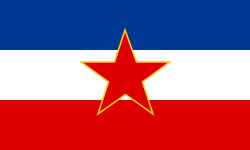| National Factbook |
| Flag: |

|
| Nation Name: |
Republic of Atlantis |
| Leader Name: |
Varathor |
| Currency: |

Bitcoin |
| National Animal: |

Kiwi |
| History: |
**History of the Republic of Atlantis (20th Century)**
The Republic of Atlantis, a small but strategically located nation in Europe, lies nestled between the mountains and the coast, with a history shaped by resilience, cultural richness, and political upheavals throughout the 20th century.
**Early 20th Century and Foundations:**
At the dawn of the century, Atlantis was a relatively peaceful land primarily composed of small towns and rural communities. Its economy was based on agriculture, fishing, and burgeoning industrial crafts. The nation maintained a constitutional monarchy, with a royal family respected by the populace, and a parliamentary system that was gradually gaining strength.
**World War I and Its Aftermath (1914–1918):**
During World War I, Atlantis declared neutrality but was affected economically and socially. The war’s end brought both relief and instability, as political movements advocating for reform gained momentum. The Treaty of Versailles and shifting European borders influenced Atlantis’s diplomatic stance, pushing it toward modernization and national unification efforts.
**Interwar Period and Political Shifts:**
The 1920s and 1930s saw the rise of various political ideologies across Europe, and Atlantis was no exception. The country experienced a series of political upheavals, from democratic reforms to the emergence of nationalist and socialist groups. In 1934, a military coup temporarily disrupted parliamentary governance, leading to authoritarian rule under General Alaric Voss, who aimed to restore national pride and stability.
**World War II and Occupation (1939–1945):**
Though Atlantis officially remained neutral during World War II, it was caught in the crossfire of European conflicts. The country was invaded and occupied by Axis forces in 1942, suffering significant destruction and hardship. Resistance movements emerged, and by 1945, Allied forces liberated Atlantis. The war’s scars deepened national resolve to rebuild and reestablish democracy.
**Post-War Reconstruction and Democratic Revival (Late 1940s):**
The late 1940s marked a turning point. Under the leadership of newly elected democratic governments, Atlantis embarked on a path of reconstruction. The nation received aid through the Marshall Plan and prioritized education, infrastructure, and social welfare. The 1950s saw the expansion of civil rights and the gradual dismantling of authoritarian remnants.
**European Integration and Modernization (1960s–1980s):**
During the Cold War, Atlantis aligned itself with Western Europe, joining regional organizations and adopting policies of neutrality balanced with economic cooperation. The country modernized its industries, expanded its education system, and embraced technological innovation. Cultural revival movements celebrated Atlantis’s rich history and diverse heritage.
**Political Stability and Challenges (1990s):**
The 1990s brought political stability but also new challenges, including economic globalization, environmental concerns, and debates over national identity. The country navigated these issues through democratic processes, strengthening its institutions and fostering a sense of unity amid diversity.
**Towards the 21st Century:**
By the century’s end, Atlantis had established itself as a peaceful, progressive nation within Europe, proud of its history of resilience and cultural richness. Its journey through the turbulent 20th century shaped a society committed to democracy, social justice, and integration into the broader European community.
|
| Geography |
| Continent: |
Europe |
| Land Area: |
5,149.89 sq. km |
| Terrain: |
The terrain of the Republic of Atlantis is a stunning tapestry of natural features that reflect its geological history and diverse climate. Nestled centrally within Europe, Atlantis boasts a landscape that seamlessly blends rugged mountains, lush forests, fertile plains, and scenic coastlines, shaping its culture and way of life.
In the northern part of the country lie expansive rolling plains and fertile lowlands, ideal for agriculture and habitation. These plains give way to gentle hills dotted with deciduous forests filled with oaks, maples, and beeches, which provide resources and scenic vistas. The northern coastlines feature sandy beaches and estuarine marshlands, vital for fishing and trade, with quaint ports and harbors that have historically connected Atlantis to broader Europe.
Dominating the landscape in the eastern-central region is Mount Vetruvius, an imposing mountain peak rising sharply from the surrounding terrain. Standing at approximately 2,500 meters, Mount Vetruvius is revered both physically and culturally, its rugged slopes and snow-capped summit serving as a symbol of national pride. The mountain's slopes are dotted with alpine meadows, crystal-clear streams, and hidden caves, and it feeds several rivers flowing outward, nourishing the fertile valleys below.
To the west of Mount Vetruvius, the land dips into lush, fertile valleys and river basins. These valleys are crisscrossed by waterways originating from the mountain, such as the Crystal River and Emerald Brook, which carve their way through the landscape toward the Atlantic Ocean. The valleys are dotted with vineyards, orchards, and small villages, embodying the country’s agricultural heartland.
Atlantis’s interior features a series of limestone formations and karst landscapes, particularly in the south and near the coast. These regions contain caves, underground streams, and unique rock formations that have archaeological and ecological significance, supporting diverse flora and fauna.
The southern hills transition into rugged terrain with limestone cliffs and rocky promontories along the Atlantic coast, creating dramatic seascapes and natural harbors. Several islands and archipelagos off the western coast contribute to the country’s marine biodiversity and are protected as ecological reserves.
Within this diverse terrain, four major cities thrive in the 21st century:
- **Wildelia**: Located in the northern plains, Wildelia is the country’s economic hub, known for its vibrant markets, cultural festivals, and a blend of modern and traditional architecture. It serves as a gateway for trade and innovation.
- **Sylvanis**: Nestled within the lush forests near Mount Vetruvius, Sylvanis is famed for its eco-friendly initiatives, parks, and sustainable urban planning, embodying Atlantis’s commitment to environmental harmony.
- **Bouley**: Situated in the fertile river valleys, Bouley is the agricultural and culinary capital, renowned for its vineyards, orchards, and gastronomic traditions that attract visitors from across Europe.
- **Clandy**: Located along the southern coast, Clandy is a picturesque port city with a rich maritime history, offering access to the Atlantic and serving as a center for tourism, fishing, and marine research.
The climate across Atlantis varies: the northern plains enjoy a temperate maritime climate with mild summers and cool winters, while the mountainous regions experience alpine conditions with significant snowfall. The southern hills enjoy a Mediterranean climate, fostering vineyards and orchards.
The diverse terrain, crowned by Mount Vetruvius and punctuated by vibrant cities, defines Atlantis as a land of natural beauty and cultural richness. Its landscape continues to inspire art, innovation, and sustainable living, making it a unique jewel in the heart of Europe in the 21st century.
|
| Highest Peak: |
Mt. Vetruivius,
2 meters
|
| Lowest Valley: |
Railley Valley,
-235 meters
|
| Climate: |
The climate of the Republic of Atlantis is remarkably diverse, shaped by its varied terrain, elevation, and proximity to the Atlantic Ocean. This diversity fosters rich ecosystems and influences the lifestyles and economies of its cities and regions.
In the northern plains and coastal areas, the climate is predominantly temperate maritime. Summers are mild, with average temperatures ranging from 18°C to 25°C (64°F to 77°F), while winters are cool but generally not severe, with temperatures rarely dropping below freezing. The region experiences consistent rainfall throughout the year, contributing to lush forests and fertile farmland. The sandy beaches and estuarine marshlands benefit from this moist climate, supporting thriving fishing and tourism industries.
Moving inland and upward toward Mount Vetruvius, the climate becomes more varied. The foothills and lower mountain slopes enjoy a transitional climate—cooler summers and colder winters—while higher elevations experience an alpine climate. In the mountain’s upper reaches, temperatures can drop below freezing for much of the year, and snowfall is common from late autumn through early spring, creating ideal conditions for winter sports and alpine tourism. The mountain’s streams and lakes are fed by snowmelt, sustaining lush meadows and diverse flora.
The southern hills and valleys, with their Mediterranean influence, have warmer, sunnier weather. Summers are hot and dry, with temperatures often exceeding 30°C (86°F), ideal for vineyards, orchards, and outdoor activities. Winters are mild with occasional rain, making this region a prime spot for agriculture and tourism year-round.
The western coast, with its cliffs and rocky promontories, experiences a moderated maritime climate, with milder winters and cooler summers than the inland areas, thanks to the influence of the Atlantic Ocean. The ocean’s breezes help keep temperatures comfortable and create a dynamic environment for marine life and coastal ecosystems.
Throughout the country, microclimates exist due to local geography—valleys may be warmer and more sheltered, while exposed mountain peaks and coastal areas experience more extreme weather patterns. Overall, the climate of Atlantis encourages a rich diversity of plant and animal life, supports sustainable agriculture, and shapes the cultural practices of its inhabitants.
|
| People & Society |
| Population: |
241,805 people |
| Demonym: |
Atlantian |
| Demonym Plural: |
Atlanteans |
| Ethnic Groups: |
Atlantidic - 78.4%
Orbisian - 14.5%
European - 7.1% |
| Languages: |
English - 85.5%
French - 10.0%
Icelandic - 4.5% |
| Religions: |
Gaianism - 95.6%
Christianity - 3.4%
Budahism - 1.0% |
| Health |
| Life Expectancy: |
86 years |
| Obesity: |
2.4% |
| Alcohol Users: |
0.2% |
| Tobacco Users: |
0.6% |
| Cannabis Users: |
0% |
| Hard Drug Users: |
0.1% |
| Economy |
| Description: |
|
| Average Yearly Income: |
$71.42 |
| Gross Domestic Product (GDP): |
$273,121,233.00 |
| GDP per Capita: |
$1,129.51 |
| Gross National Income (GNI): |
$150,701,565.00 |
| Industries: |
|
| Military |
| History: |
|
| Soldiers: |
0 |
| Tanks: |
0 |
| Aircraft: |
0 |
| Ships: |
7 |
| Missiles: |
0 |
| Nuclear Weapons: |
0 |
| Last Updated: 08/06/2025 06:54 am |


















